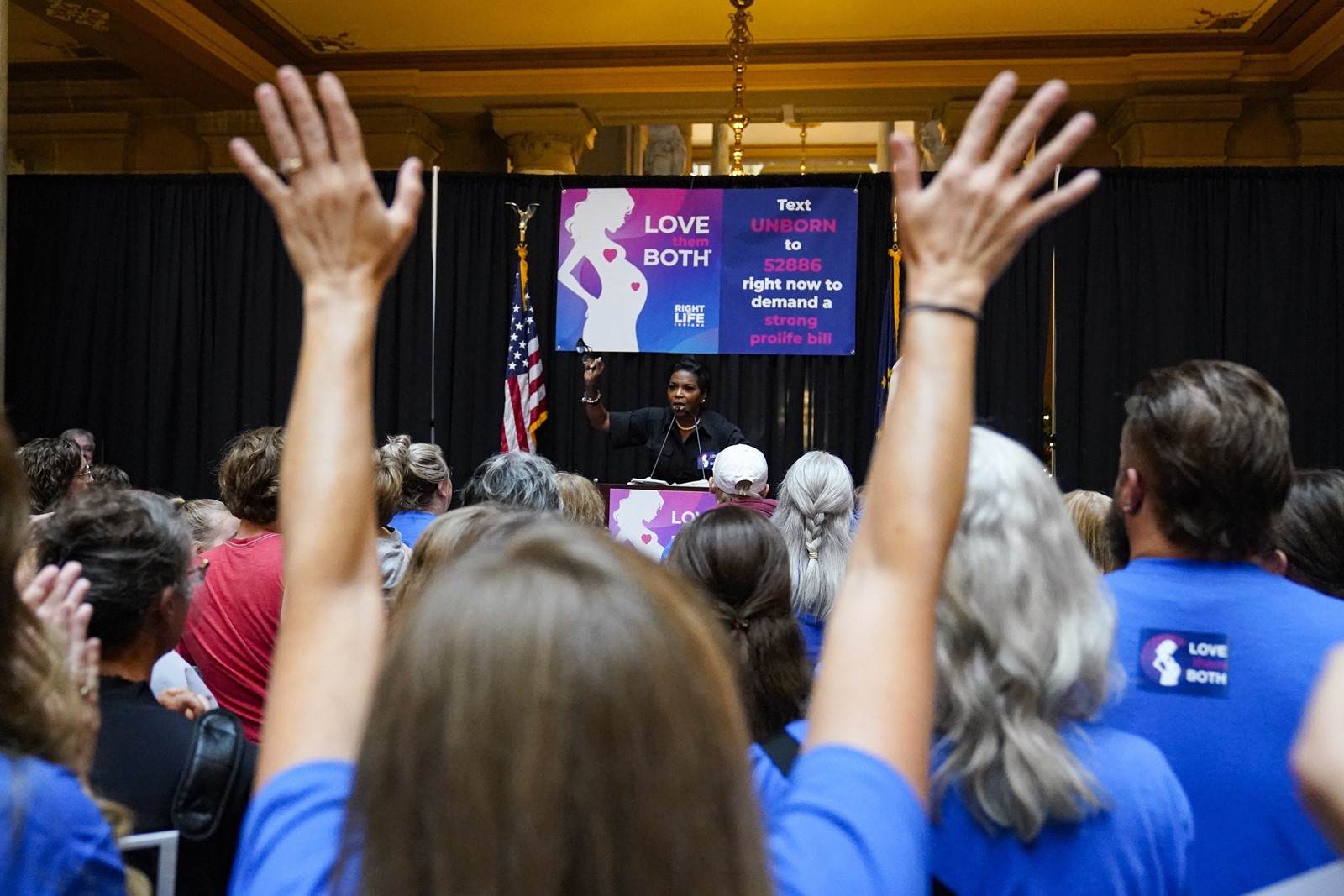Overturning Roe vs. Wade isn’t the end for abortion opponents

Now that Roe vs. Wade has been toppled, abortion foes are taking a multifaceted approach in their quest to end abortions, targeting their strategies to the dynamics of each state.
One group proposes legislation to ban abortions except to prevent a pregnant person’s death. New legal frontiers could include prosecuting doctors, and skirmishes over abortion pills are underway. Others hope to elect more conservatives to advance their agenda.
“The post-Roe world will be significantly different, from a legal perspective,” said George Washington University law professor Jonathan Turley. “For the last 50 years, Republicans have been on the offense by chipping away on the edges of Roe. Now they are going to be playing defense in all 50 states.”
The ruling that abortion is not a constitutional right allows states to enact more restrictions. Lawmakers in West Virginia and Indiana have tried most recently, with varying success.
James Bopp Jr., general counsel for National Right to Life, has worked on model legislation for states, but says that “the process of adopting new laws is really just beginning.”
The model law recommends banning abortions except to prevent a pregnant person’s death, but offers language for states to make exceptions for rape or incest. It also recommends criminal penalties for anyone who knowingly causes or aids an “unlawful abortion,” but would not criminalize those who get them.
A memo on the model law suggests those who aid and abet or conspire to cause an unlawful abortion could be prosecuted, including those who give instructions on getting or self-administering an abortion to someone they know is seeking one.
The model law also has language on prosecuting those, other than pharmacists or drugmakers, who deliver or advertise for sale an abortion-inducing drug to someone they know plans an unlawful abortion.
Abortion foes are also looking to November, when they hope to elect more candidates who will enact such laws. But many are taking a “cautious pause” on the issue, according to Larry Jacobs, a politics professor at the University of Minnesota.
“Republicans have a much better chance of winning ... talking about inflation, crime and Joe Biden,” he said. “When they [discuss] abortion, they are doing Democrats a favor.”
Conservatives also expect more battles in court.
Former Texas Solicitor Gen. Jonathan Mitchell came up with some key components of the state’s law that essentially bans abortions after six weeks from conception. It was his idea to have citizen lawsuits, rather than the government, enforce the ban.
Mitchell is representing Texas and South Dakota in abortion suits and has helped lawmakers in multiple states develop antiabortion laws, and says future legal fights may target those who pay for abortions for people in states where bans are blocked by injunctions.
“Abortion is still a criminal offense in every state with a trigger law or pre-Roe ban, regardless of whether a state-court injunction is in effect,” he said in an email, noting injunctions only temporarily block enforcement.
He said employers or others who help fund abortions in certain states could be prosecuted, and providers could be prosecuted retroactively.
“And the mere risk of potential lawsuits may ... deter abortion providers from [serving] out-of-state residents,” Mitchell wrote. “Especially when these lawsuits can be brought not only against the physician but everyone else involved.”
NYU Law professor Melissa Murray said charging those who pay for out-of-state abortions is “uncharted ground.” They may argue they’re exercising their free speech, she said in an email, but “a state could argue that [they’re] facilitating the violation of a criminal law ... as accomplices.”
Fears of prosecution have led some clinics to close over the confusion, reopen, then close again, and have led doctors to withhold emergency treatment until it was clear a fetus was dead or a patient’s life was at stake.
Erin Hawley, a lawyer at the conservative Alliance Defending Freedom, expects continuing litigation over medication abortions.
She pointed to a drugmaker’s lawsuit against Mississippi for making it harder to get mifepristone prescriptions. The state’s policies are at odds with Food and Drug Administration regulations, which courts have generally found take precedence over state law.
But Hawley said that might not apply because “it’s always a big deal for a federal agency or law to trump state law.”
Some states are taking different approaches.
Louisiana recently withheld a $39-million line of credit for a New Orleans sewer and water project to “send a message” after local officials said they would not enforce the state’s abortion ban, which is currently blocked by a court.
Texas sued the federal government in mid-July after the Biden administration said hospitals are required to provide abortions if necessary to save a pregnant person’s life.
And voters in Kansas will cast ballots Tuesday on a referendum that could make it the fifth state to declare its constitution doesn’t grant the right to abortion, allowing the Legislature to further restrict or ban it.
Bopp said abortion foes would eventually like federal and state amendments that explicitly protect “the unborn.”
“A constitutional amendment has been one of our goals,” he said. “But this requires a hell of a consensus.”


